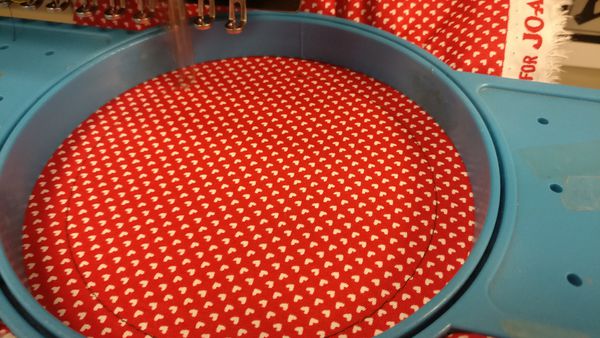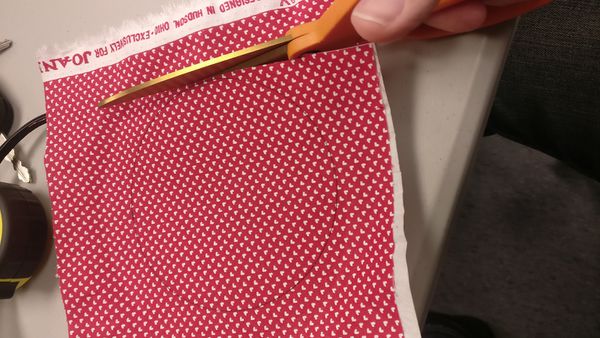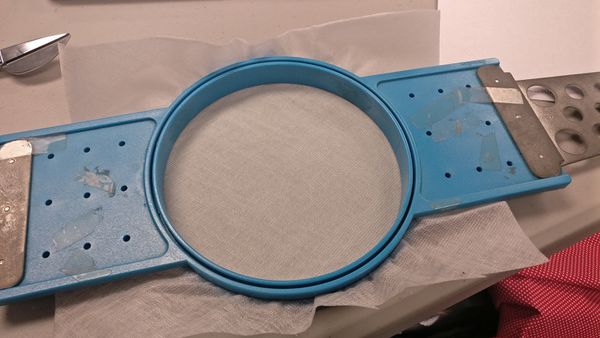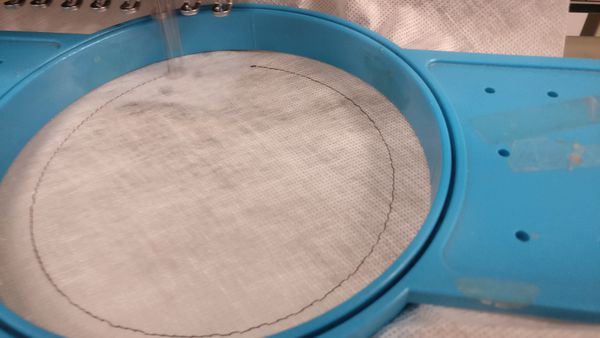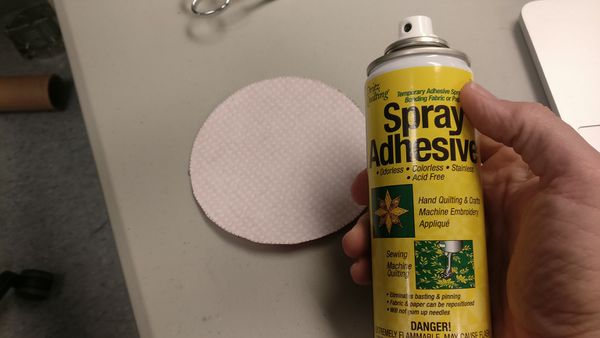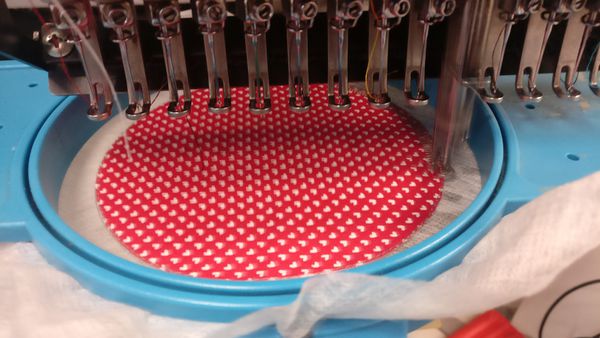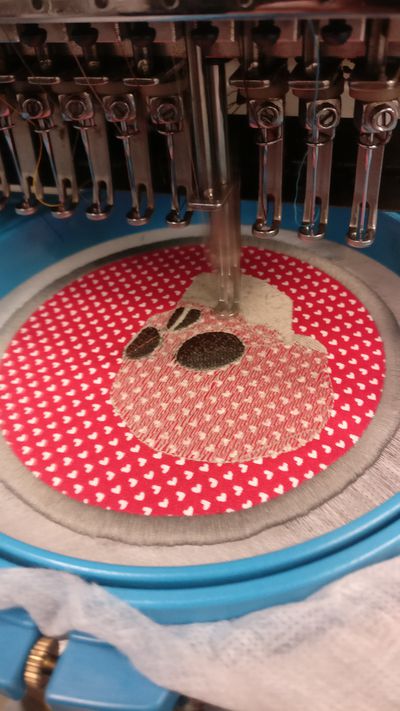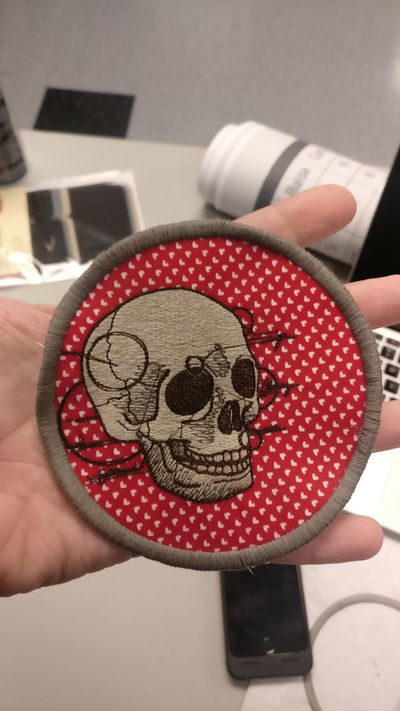How to Make an Embroidered Patch on the Barudan Elite
Patches are awesome. This guide will help you learn how to make patches on the MakerFX Barudan Elite embroidery machine, but this process is the same even for other types of embroidery machines.
Contents
Getting Started
- Watch this video for an overview of the process - Embroidery Hub Ep. 28: DIY Patches | Bulk Patch Embroidery Tutorial
Learning Resources
- Links:
- How to Make Patches with Your Embroidery Machine - Erich Campbell
- How to Make Patches - Cotton and Steel Fabrics
- Patch It Up - Urban Threads
- Videos:
- Embroidery Hub Ep. 28: DIY Patches | Bulk Patch Embroidery Tutorial - Good video of the process
Materials Used for Making Patches
- Quilting cotton with patterned designs - its a bit thin, but looks great with designs, especially with bright colors
- Twill - I've experimented with Twill iron-on patches and now looking for a source of twill by the yard
- Spray Adhesive - Dritz Quilting Adhesive Spray - DO NOT USE STANDARD ADHESIVES, they can gum up the needles
- Standard Stabilizer (I've been using the roll)
- Water Soluble Stabilizer (Need to note the Pellon # that I've been using)
Prepping the Art
There are a few different ways to approach patch making. You can take an existing embroidery design and a separate applique / patch border and use them together, OR you can design a custom patch file. You need a "dieline" which is a single perimeter stitch for placement, a zig-zag tack down stitch (optional, but recommended), the patch edge border, and the main design for the patch.
For this tutorial, I used two designs from Urban Threads.
Designs: UTZ1143 - Patch Border - Circle and UT2006 - Anatomical Skull
I purchased the designs, downloaded the .dst files, downloaded the thread list pdf (example), then selected matching threads using the Madeira online rayon thread color guide (since Urban Threads specifies their colors using Madeira thread.
Making the Patch
NOTE: This tutorial assumes you already know how to load thread, load a file, set the origin, etc. Strongly suggest trying a new design on a piece of stabilizer first to ensure that it works well before going through the full patch process.
Steps:
- Art Prep
- Need the embroidery Design
- Need an outer circle stitch - I used embird to add a "basting stitch" in the editor.
- Gather Materials
- Make a fabric sandwich - front fabric, back fabric - can use the same fabric. Can fuse with adhesive or with a fusable interfacing material
- Hoop the fabric + standard backing
- Embroider the dieline on the fabric and backing
- Cut the fabric + backing very close to the dieline
- Hoop the water soluble stabilizer
- Embroider the dieline on the water soluble stabilizer
- Apply spray adhesive to back of the fabric + backing
- Place the fabric + backing onto the water soluble stabilizer using the dieline as a guide
- If you have a zigzag stitch line for attaching the patch (like in the Urban Threads patch borders) use it to attach the patch - otherwise, start embroidering the border. If your patch needs the border done last, strongly recommend using a zigzag attaching stitch.
- Embroider the border, then the center art
- Clean up any extra threads / jump stitches, etc.
- Unhoop the patch
- Trim the water soluble stabilizer close to the patch edge
- Rinse the patch to washaway the stabilizer
- Use a cloth to absorb excess water and let the patch dry
